Richard Carapaz's Giro win could help cycling thrive in Ecuador
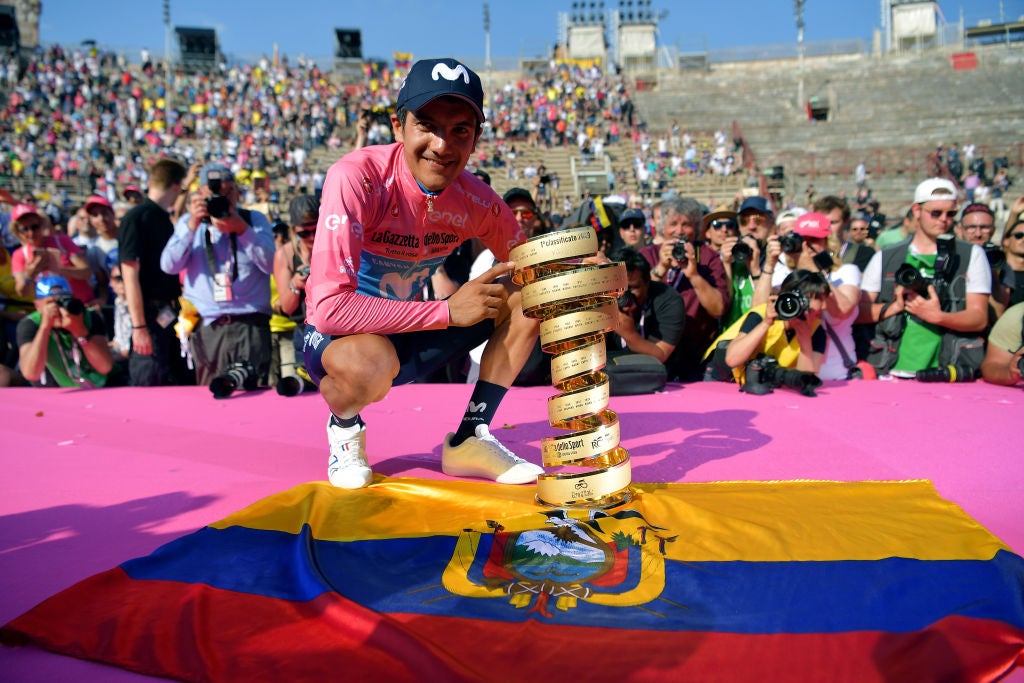
VERONA, ITALY - JUNE 02: Podium / Richard Carapaz of Ecuador and Movistar Team Pink Leader Jersey / Celebration / Trofeo Senza Fine / Trophy / Ecuadorian Flag / during the 102nd Giro d'Italia 2019, Stage 21 a 17km Individual Time Trial stage from Verona - Fiera to Verona - Arena / ITT / Amphitheatre / Arena di Verona / Tour of Italy / #Giro / @giroditalia / on June 02, 2019 in Verona, Italy. (Photo by Justin Setterfield/Getty Images)
Just call it the “Carapaz effect.”
When Richard Carapaz rolled into the Roman amphitheater in Verona last May, surrounded by a sea of Ecuadorian flags to celebrate the country’s first grand tour champion, cycling pundits wondered if there is a peloton full of champion cyclists waiting undiscovered high in the Andean nation.
Could Ecuador become cycling’s new Colombia? Many are hoping so, but insiders say it’s been a long road from the Ecuadoran highlands to the historical Giro winner’s podium.
“We have very good cyclists and are capable of reaching very big things like wearing the ‘maglia rosa’ in Italy,” said Santiago Rosero, director of Ecuador’s national team. “After everything we have seen with the phenomena of Carapaz, we find that we are still a long way from supporting the athletes.”
An untapped cycling nation
Unlike neighboring Colombia, which has a deep vein of cycling tradition, Ecuador is largely untapped cycling territory. In Colombia, cycling is already established as a national sport dating back decades, with generations of stars and local clubs serving young talent that spawned the likes of Egan Bernal and Nairo Quintana.
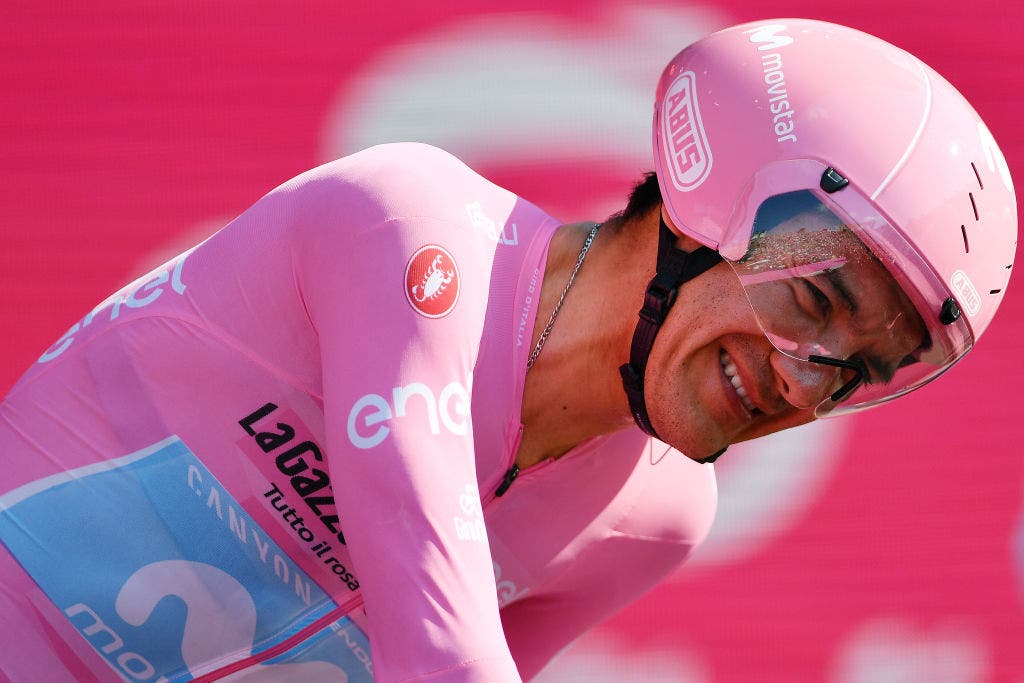
In Ecuador, the cycling infrastructure and support is just starting to take hold. Carapaz’s Giro victory is just the kind of spark the sport needs to catch fire.
Rosero — who manages the only UCI Continental team in the country, Movistar Team Ecuador — said Ecuador has a lot of catching up to do.
Rosero has been a pioneer for the sport in Ecuador. Along with his business partner, José Ragonessi, Rosero says they were the only two nearly a decade ago with the vision of seeing Ecuadorian riders racing at different levels internationally. The duo had a dream of building a program that would showcase the up-and-coming talent in the country, to the teams on the WorldTour.
Besides Carapaz, graduates of the program include Jonathan Caicedo who currently races for EF Education, and Jonatan Narvaez racing for Team INEOS.
“There was no one taking the initiative to lead a process that could see this happening in our country, where there is support for the riders,” Rosero said.
“This is not a product that we awoke one day with a desire to win and we won,” he added. “At the time, Team Ecuador was a high performance cycling club, but it was our drive to race internationally. From there we worked to get riders racing on a very high level so they could be winning races in Europe, similar to what the Colombians did.”
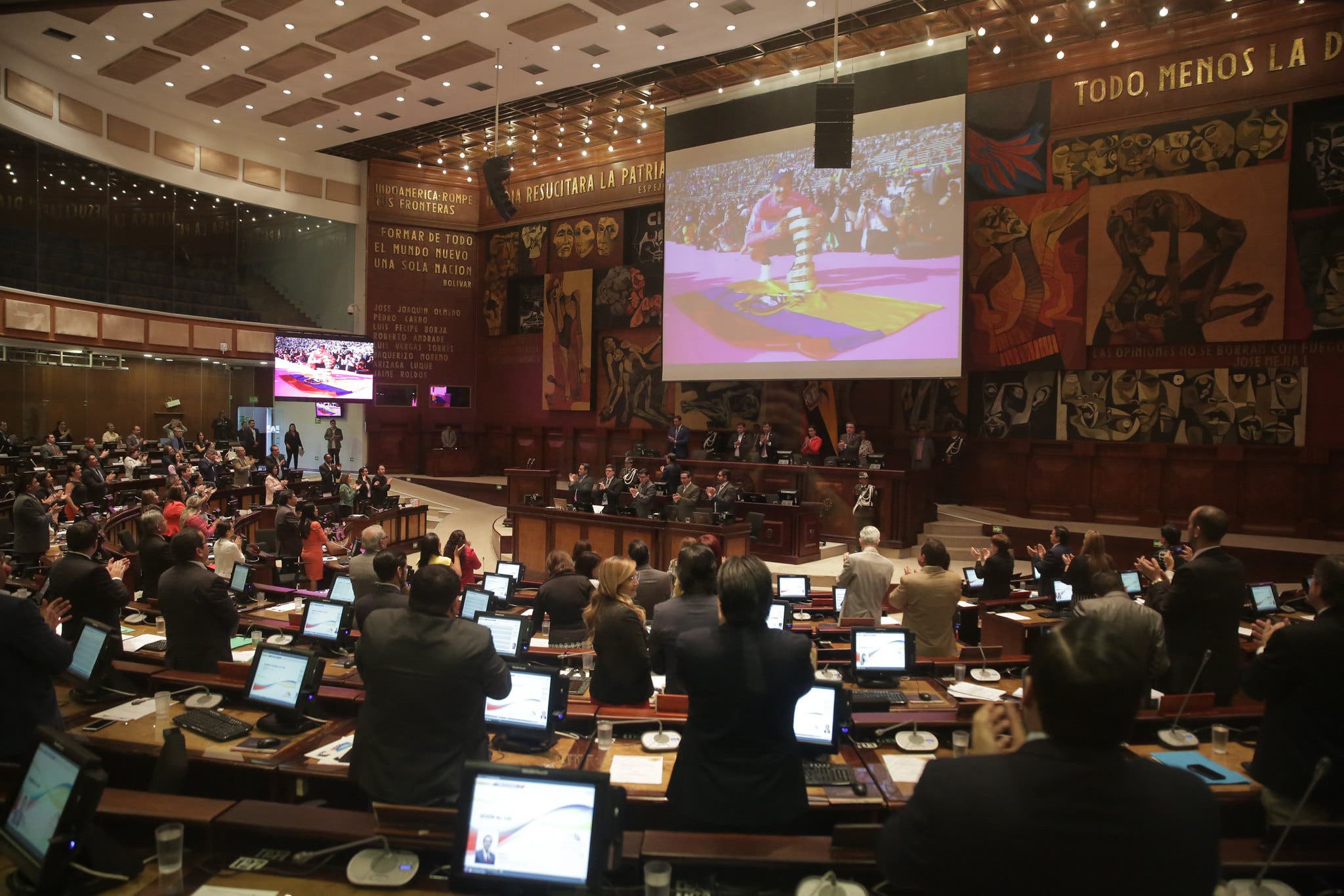
Carapaz’s historic Giro victory is already paying dividends, however, in added interest in pro cycling.
Cycling is a sport largely unknown in Ecuador, where football continues to reign supreme, unlike their neighbors to the north where the two sports are nearing equality.
Yet for three weeks in May, the country woke early with a renewed national pride, watching one of their greatest sport figures, reign supreme in Italy. In the final week of the Giro, President Lenín Moreno announced the last stage would be streamed for free on ESPN so the entire country could witness history.
The president also announced he would abolish import taxes on bicycles and would increase efforts to support its athletes.
There was even a popular song that hit the airwaves — “Carapaz, eres capaz a ganar una vez más!” (Carapaz, you can win one more time!). The words could be heard all across the country, and high up in the mountains in the small town of Carchi, where Carapaz calls home.
A natural talent
Despite working with the limited funds, Rosero decided to take his riders to Central America and Europe to give them exposure. Fate came calling in 2013, when he met Carapaz and took him to race at the Vuelta a Guatemala.
Carapaz’s natural qualities soon became apparent.
“Richard is an athlete with very clear goals, who works constantly at achieving them,” Rosero said. “That year, he won the U23 classification at the Vuelta in Guatemala. From there, we went immediately to the Pan American Championships in Mexico where he became the champion.
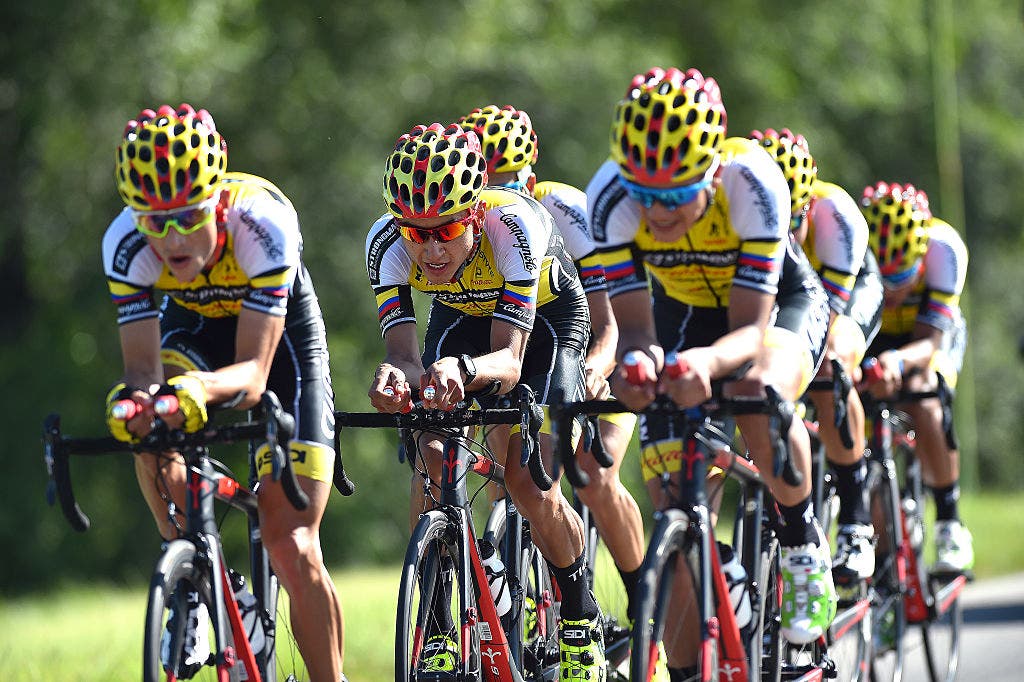
After that initial win in Guatemala, Rosero took Carapaz to Europe for a two-month racing campaign in Romania, Spain, and France. Carapaz blossomed during the trip.
“It was then we realized we had a rider with a lot of potential in the mountains,” Rosero said.
Carapaz’s performance in Guatemala caught the eye of Coldeportes Bicicletas Strongman, one of Colombia’s top development programs. Carapaz was coming off an injury that kept him off the bike for nearly half a year, and his comeback race was the Vuelta a Ecuador, where his massage therapist helped him secure a spot on Bicicletas Strongman.
The team was also short of talent for the upcoming Vuelta a Juventud, one of Colombia’s top amateur races. Carapaz became the first foreigner to win the race’s GC. The win helped secure a start at the 2016 Vuelta a San Juan. Not long after that, Movistar came calling, offering a neo-pro contract.
The door to the WorldTour swung open, and Carapaz confidently strode in. In his first full WorldTour season in 2017, Carapaz was already revealing his class with a string of top-5 results across Europe. He roared into 2018, picking up his first pro wins at the Vuelta a Asturias, before smashing it at the 2018 Giro, winning a stage and finishing fourth overall. The cat was out of the bag.
A win to popularize cycling
Flash forward to May 2019, and Carapaz was performing the way that Rosero always believed he could.
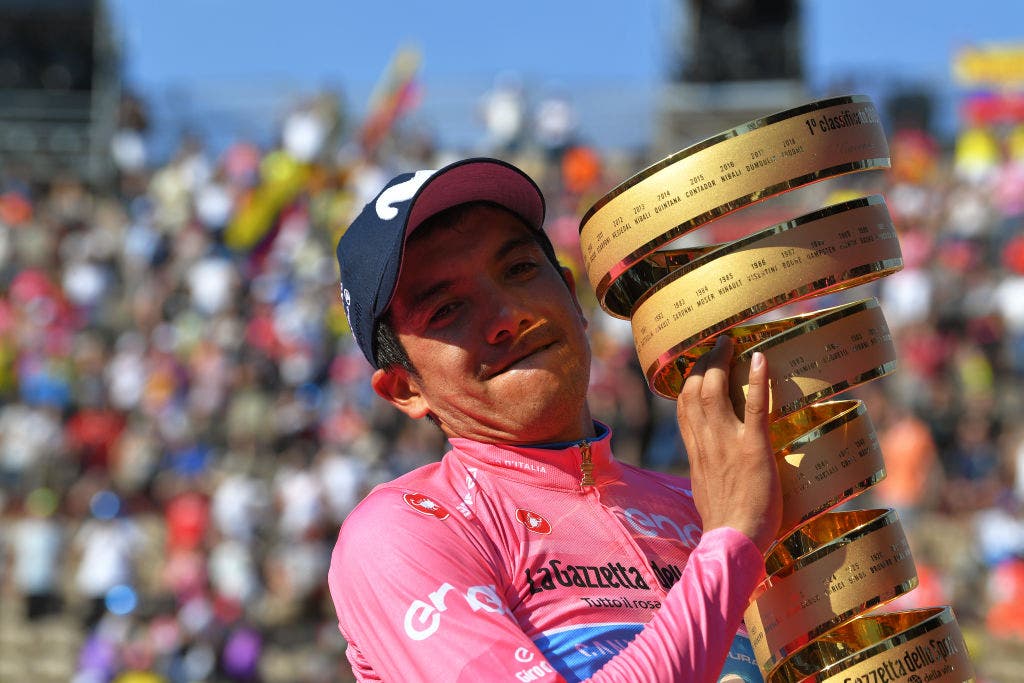
Rosero watched the Giro confident Carapaz would be able to respond to each acceleration by his rivals. It is no secret South American’s can climb — Carapaz’s hometown of Carchi sits at over 11,000 feet in altitude — so what surprised Rosero most was not the way Carapaz was able to respond in the mountains, but rather the depth he demonstrated in the individual time trials.
“We have lost so many races because of this. The time trial for us is something very complicated,” Rosero said. “Yes, it’s true that he lost time but not like the time we normally lose in these types of stages. I knew he was able to be where he needed to be in the mountains, fighting among the best!”
After the last of the pink ribbons from the celebration for Carapaz had been swept away, Rosero hopes the memory of this grand victory will remain in the memory of Ecuadorians and especially in the forefront of the media in the country for a long time to come.
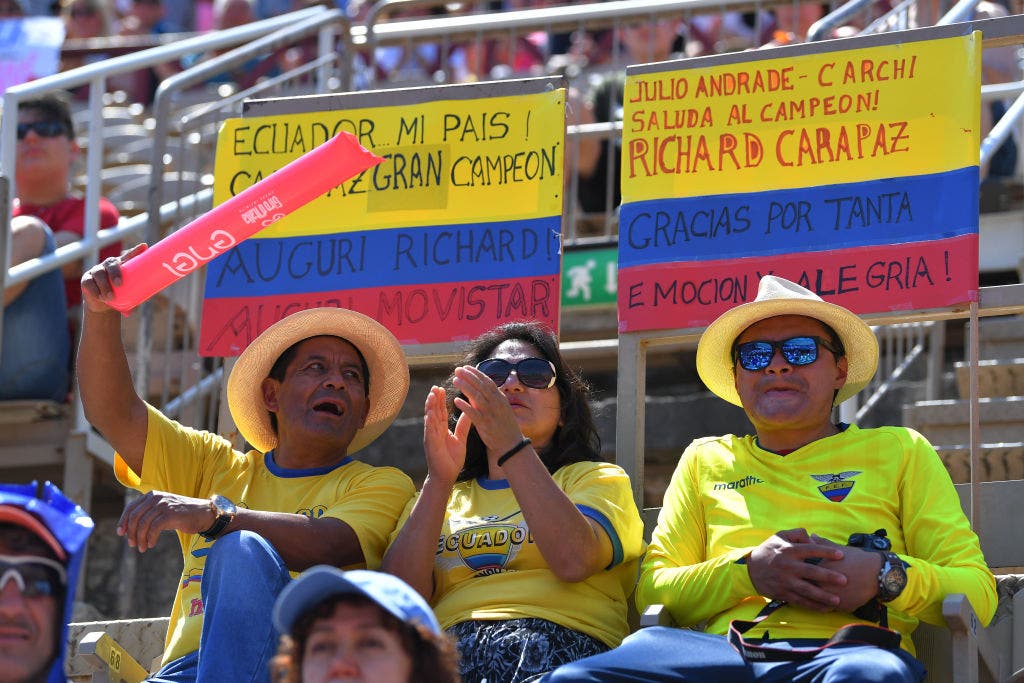
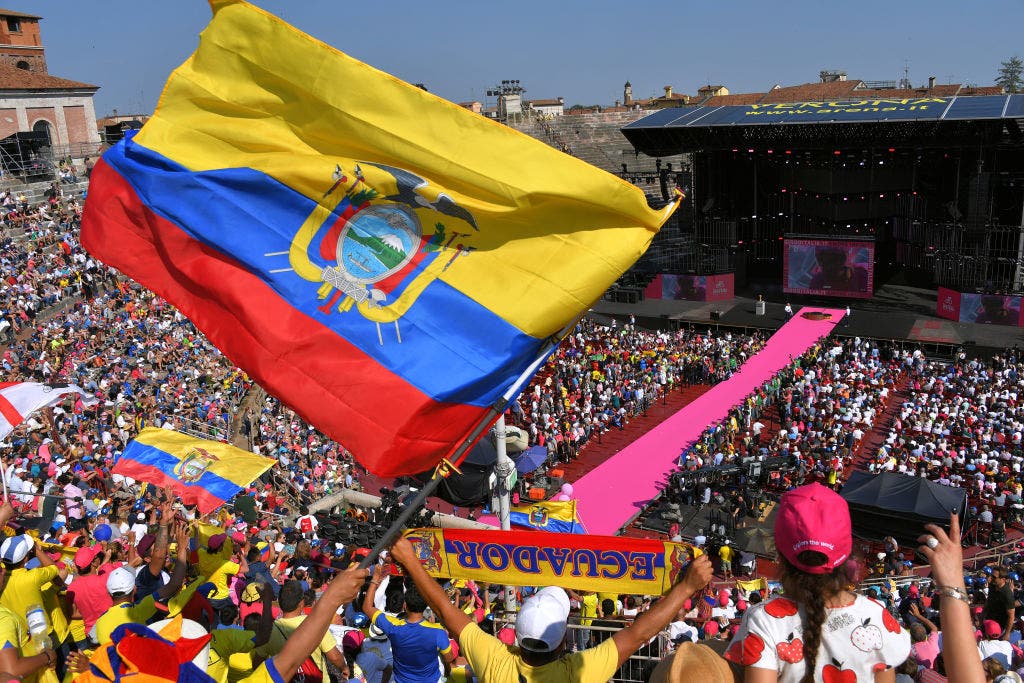
“We understand the government is a big part, but it is also fundamental that private companies invest in cycling and not just in soccer, so that we are able to offer riders more opportunities to race so that we don’t waste the talent we have,” Rosero said. “Cycling is not seen as a profession but rather a hobby. This was the mentality of my parents, and other parents of our cyclists. Now we see Richard is at the point of signing a contract that’s over a million euros. So, they see this allows the ability to earn a living in the sport.”
The seed is planted, and now Carapaz has blazed the trail. Just like the pioneering Colombians did in the 1980s, perhaps Carapaz’s landmark Giro victory will serve as springboard for generations to come.
If Ecuador can become cycling’s new Colombia, it all started with Rosero and his commitment to give raw untested talent a chance to compete on the world stage.